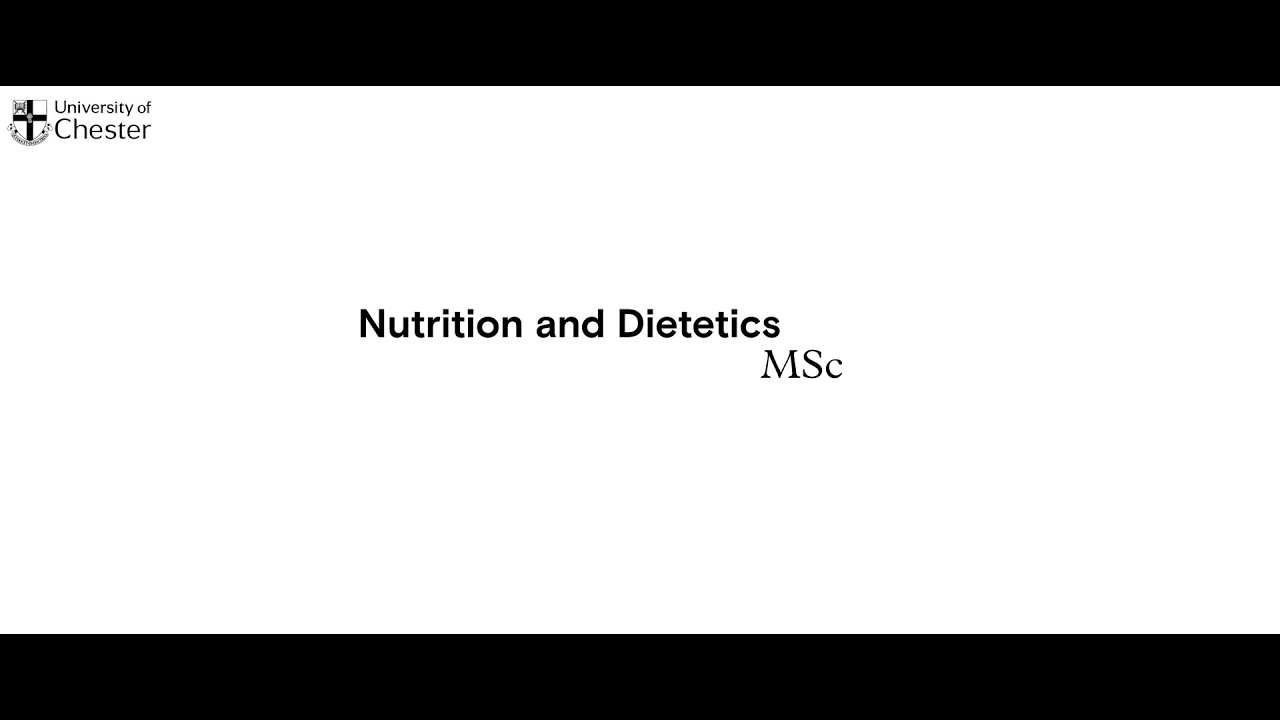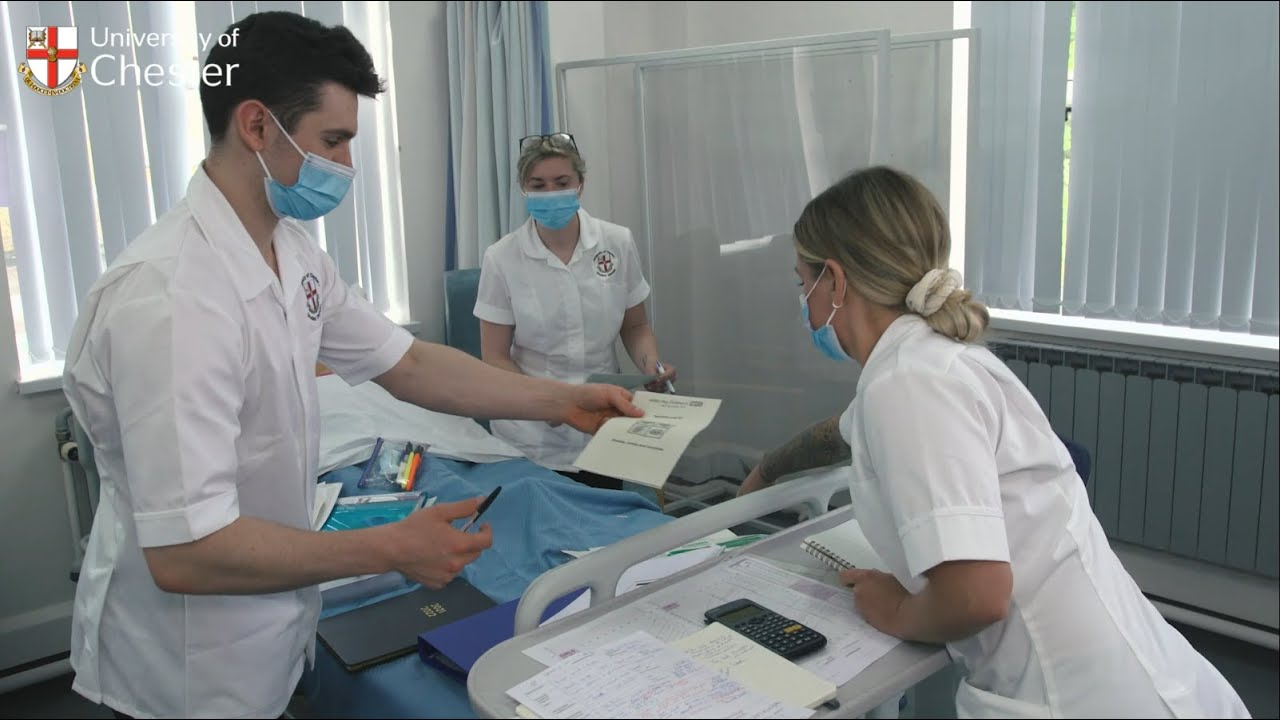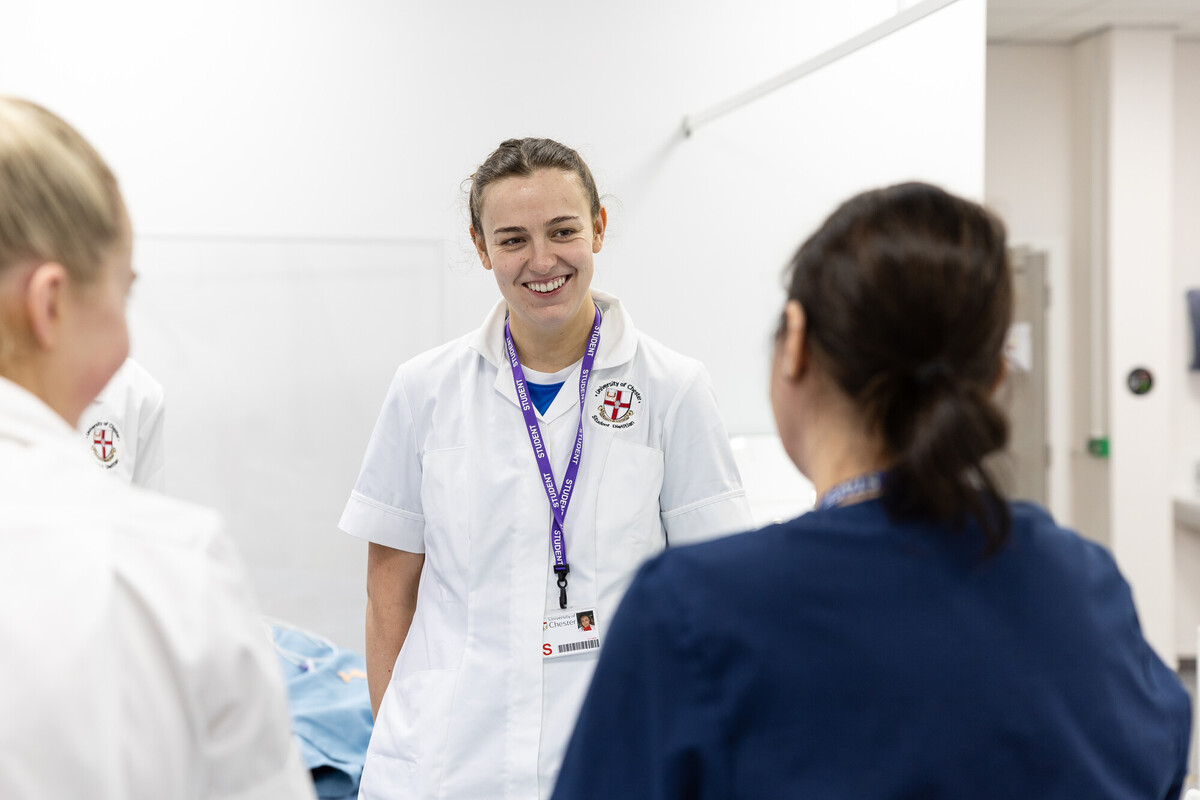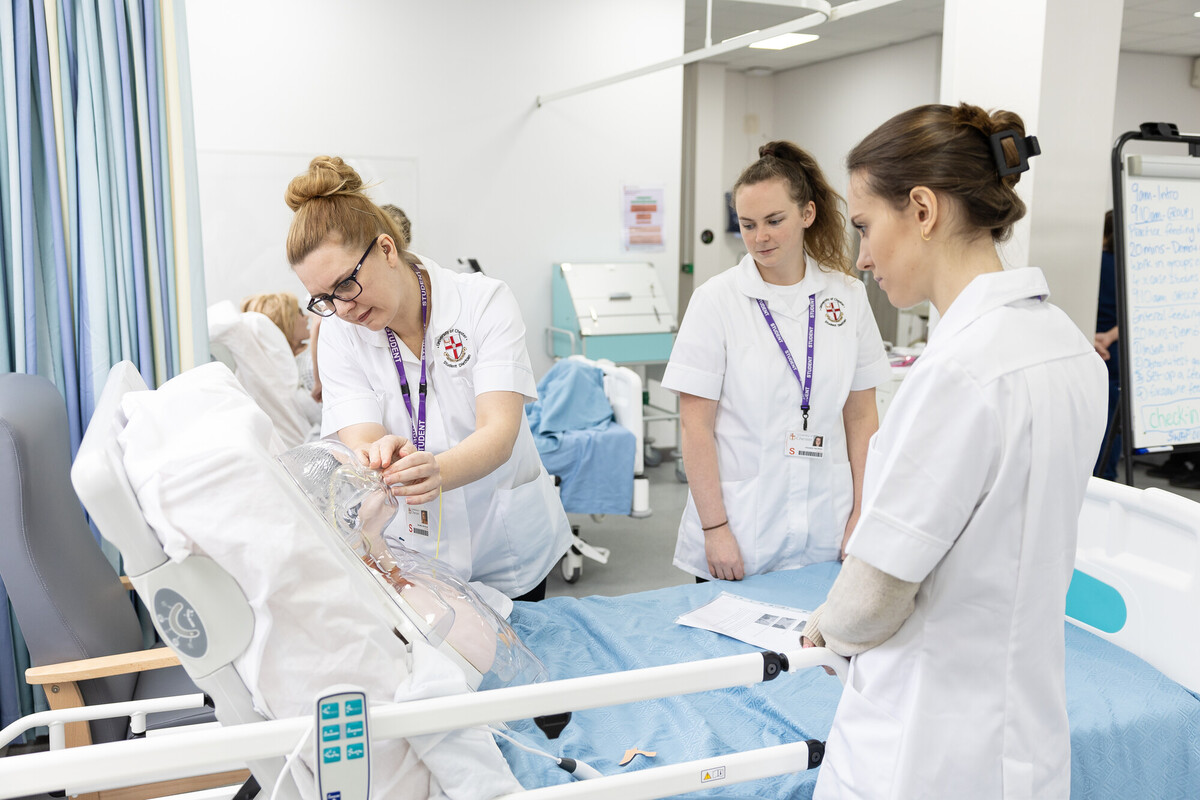Nutrition and Dietetics MSc

Our professional two-year postgraduate degree course in Nutrition and Dietetics will provide you with the eligibility to register as a dietitian with the Health and Care Professions Council (HCPC) and enter the workforce as a registered Allied Health Professional. Whether you’ll be working in the NHS, private healthcare, public health, the food and drink industry, sports nutrition or as a freelance dietitian working in the media, this course will allow you to use the protected title ‘Dietitian’. The course is also accredited by the British Dietetic Association (BDA), the professional body for dietitians.
We actively engage with local dietetic departments to provide you with a course that has an ethos of evidence-based practice and professional development to support you in both study and practice. The department has a strong reputation in research that is world-leading, and our teaching staff bring a wealth of expertise to the course in areas of nutrition. A significant part of the course also involves clinical placements in healthcare. We have fostered a longstanding, collaborative relationship with healthcare providers across Cheshire and Merseyside where you will be well-placed to gain the experience required to become a registered professional.
We highly recommend that all students interested in applying for Nutrition and Dietetics attend a Dietetics Awareness Event put on by either the University or by a local partnership NHS Trust, to help increase your knowledge and awareness, and gain an insight into what it is like to work as a dietitian.
Students that do not wish to study the full MSc programme, can choose to study to a PGDip level instead.
Learn more about applying for this course
Applications for 2026/7 are now open.
Please note that there is a deadline for the receipt of completed applications: 12.00pm on Friday 29th May 2026
We may not be able to consider any applications after this deadline.
The deadline for receipt of satisfactory references is 12.00pm on Friday 12th June 2026.
Accreditations


Nutrition and Dietetics MSc at the University of Chester
What You'll Study
Our modules aim to develop your knowledge and critical understanding of the science underpinning health and give you extensive knowledge of dietetics for the prevention and treatment of disease. You will develop the necessary attitude, practitioner skills and ability to make reasoned clinical judgements informed by evidence. Modules will cover content covering dietetic practice, evidence-based practice, how dietitians can be used as a resource, and general leadership and management.
The information listed in this section is an overview of the academic content of the course that will take the form of either core or option modules and should be used as a guide. We review the content of our courses regularly, making changes where necessary to improve your experience and graduate prospects. If during a review process, course content is significantly changed, we will contact you to notify you of these changes if you receive an offer from us.

How we teach at the University of Chester
Teaching is delivered in interactive workshops, lectures, tutorials, and practicals delivered in course-specific facilities and laboratories, and on placement with local NHS Trusts and practitioners. There are a variety of assessments, including examinations, coursework, and group and individual presentations.
Due to the need to achieve professional accreditation and registration, the teaching experience is intensive and student focused. Contact hours vary through the semesters, but you will have around 12 contact hours and 18 hours of self-study per week, including working towards assessments.
On this course, you’ll spend time out on placement where you’ll apply what you have learnt to real scenarios in the workplace, giving you genuine experience and insight that will prepare you for your future career.
While you are a student with us please consider joining our University of Chester Nutrition Society. Follow us on X/Twitter for other opportunities for you to get involved with our department and wider dietetic community.
Your Future Career
Job Prospects
Most of our graduates go on to careers initially within the NHS, however their transferable skills enable employment in other related fields, such as the food and pharmaceutical industries, public health and health promotion, education, sport, and freelance opportunities.
Careers Service
The University has an award-winning Careers and Employability service which provides a variety of employability-enhancing experiences; through the curriculum, through employer contact, tailored group sessions, individual information, advice and guidance.
Careers and Employability aims to deliver a service which is inclusive, impartial, welcoming, informed and tailored to your personal goals and aspirations, to enable you to develop as an individual and contribute to the business and community in which you will live and work.
We are here to help you plan your future, make the most of your time at University and to enhance your employability. We provide access to part-time jobs, extracurricular employability-enhancing workshops and offer practical one-to-one help with career planning, including help with CVs, applications and mock interviews. We also deliver group sessions on career planning within each course and we have a wide range of extensive information covering graduate jobs.

Nutrition and Dietetics - Ward Simulation Knowledge and Skills
Entry Requirements
2:1 honours degree
Normally, an upper second (2:1) class honours degree in a relevant science subject is required, with modules in Biochemistry (minimum 20 credits at Level 4 or above) and Physiology (minimum 20 credits at Level 4 or above), plus an additional 20 credits in a relevant science subject (such as immunology, microbiology or genetics). All students need to have completed an undergraduate dissertation or research project.
Academic study should have taken place within the last five years. If your degree was completed more than five years ago, we will require evidence of academic study, or career and professional development activity, within the last five years.
Students with a 2:2 including a substantial amount of Biochemistry and Physiology will also be considered alongside performance at interview.
Applicants must also:
- attend an interview
- complete a satisfactory health check and Disclosure and Barring Service check
For further details of the application process, please see: Applying for Nutrition and Dietetics.
Safeguarding / Suitability
All successful candidates who receive an offer of a place for this course and choose the University of Chester as their Firm choice will be required to undergo checks with regards to their suitability to practice. A couple of months prior to admission to this course, the University will contact you to request that you complete a self-declaration form detailing any relevant convictions or other information that you believe may have an impact upon your ability to undertake work with children or vulnerable adults. You will also receive instructions on how to complete an online application for a Disclosure and Barring Service (DBS) check through the University as a registered body (there will be a charge for this). Please note that the University does not accept previous DBS checks from other registered bodies or the update service. For details about the cost of the DBS and for further information please visit our DBS web pages.
2:1 honours degree
Normally, an upper second (2:1) class honours degree in a relevant undergraduate degree. Suitable subjects include Biochemistry, Physiology, or related scientific disciplines such as Immunology, Microbiology, or Genetics. All students need to have completed an undergraduate dissertation or research project.
Academic study should have taken place within the last five years. If your degree was completed more than five years ago, we will require evidence of academic study or career and professional development activity within the last five years.
As part of the application process, candidates will be required to:
- Attend an online interview
- Complete a satisfactory DBS and occupational health check
English Language Requirements
Applicants must also require IELTS 7.0 overall, with no less than 6.5 in each component.
Fees and Funding
£19,070for the full course (2025/26)
Guides to the fees for students who wish to commence postgraduate courses in the academic year 2025/26 are available to view on our Postgraduate Taught Programmes Fees page.
The programme is self-funded. Please note, that despite this being a postgraduate course, most students are advised to apply for an undergraduate, rather than a postgraduate, student loan. You can choose to apply for the Postgraduate Diploma or the MSc.
Most students can then also apply for additional financial support from the NHS Learning Support Fund. There is also a £5,000 per year Healthcare Grant, which has been extended to Nutrition and Dietetics students. For further information, please visit Student Loans Company. However, students intending to fund their studies via a student loan from Student Finance Northern Ireland should apply for a postgraduate student loan.
Generally, the funding you can apply for depends on the UK country where you ordinarily live. Please visit The Funding Clinic for further information.
£15,500per year (2026/27)
The tuition fees for international students studying MSc Nutrition and Dietetics in 2026/27 are £15,500 per year.
The University of Chester offers generous international and merit-based scholarships for postgraduate study, providing a significant reduction to the published headline tuition fee. You will automatically be considered for these scholarships when your application is reviewed, and any award given will be stated on your offer letter.
For more information, go to our International Fees, Scholarship and Finance section.
Irish Nationals living in the UK or ROI are treated as Home students for Tuition Fee Purposes.
Your course will involve additional costs not covered by your tuition fees. This may include books, printing, photocopying, educational stationery and related materials, specialist clothing, travel to placements, optional field trips and software. Compulsory field trips are covered by your tuition fees.
Prior to admission to this course, you will be required to obtain a Disclosure and Barring Service (DBS) check through the University, for which there will be charge. Please visit the DBS webpage for information about the cost and further details.
The University of Chester supports fair access for students who may need additional support through a range of bursaries and scholarships.
Full details, as well as terms and conditions for all bursaries and scholarships can be found on the Fees and Finance section of our website.













